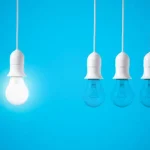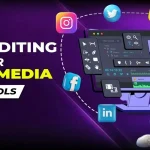The marine world is changing fast, moving towards electric boat motors. Boaters in the United States are seeing the big benefits of these motors. They offer better performance and are good for the environment Electric Outboard Motors.
Choosing electric outboard motors is more than just a new tech. It’s about keeping our waterways clean and making boating more efficient. These motors are powerful, quiet, and save money compared to gas engines.
This guide will help you understand electric outboard motors. We’ll cover technical details, top brands, and how to install them. Our aim is to give you the knowledge to choose the right motor for you.
If you love sailing or are a marine enthusiast, electric boat motors are worth exploring. We want to make this technology easy to understand. Our goal is to help you find the perfect motor for your boating needs.
Understanding the Benefits of Electric Outboard Motors
Marine electric motors are changing the way we boat, offering a green alternative to old engines. More boaters are seeing the big benefits of electric motors. These include better environmental, economic, and performance outcomes.
Environmental Advantages
Choosing marine electric motors means no direct emissions. These new systems cut out the harmful pollutants gas engines make. They help keep our oceans clean and protect marine life.
- Zero direct emissions at point of use
- Reduced environmental impact
- Minimal ecosystem disruption
- Lower carbon footprint compared to traditional motors
Cost Savings Over Time
Even though electric motors cost more upfront, they save money in the long run. They need less upkeep, saving you from oil changes, spark plug costs, and big repairs.
- Lower ongoing maintenance costs
- No fuel expenses
- Fewer moving parts
- Extended operational lifespan
Quiet Operation and Performance
Electric outboard motors are quiet and perform well. They let you enjoy the sea in peace, talk easily, and disturb wildlife less. They also offer quick power and smooth running, making them great for all kinds of boating.
Key Specifications to Consider Before Buying
Choosing the right electric propulsion systems is crucial. Boat owners need to know the technical details that affect performance and fit. Reviews often stress the importance of matching the motor’s specs to your boating needs.
When looking at electric outboard motors for sale, keep an eye on these important specs:
- Voltage Systems (12V, 24V, 36V, 48V)
- Higher voltage means more power
- It affects the motor’s efficiency
- Shaft Length Options
- It must fit your boat’s transom height
- It impacts stability and how well the motor performs
- Weight Considerations
- Electric motors are often heavier because of the battery
- Finding the right balance between weight and power is key
Control systems are also key in electric propulsion. Buyers should decide between tiller and remote steering based on their boating style. The type of propeller used affects the motor’s efficiency, with different designs suited for different water conditions.
Reviews suggest paying close attention to technical details like horsepower, continuous power ratings, and efficiency. These specs help boat owners make choices that meet their boat’s needs and performance goals.
Step into this related post for perspectives that complement and deepen your reading.
Power and Thrust Requirements for Your Boat
Choosing the right electric motor thrust is key for your boat’s best performance. The power of your trolling motors affects your boat’s speed, efficiency, and how well it turns. Knowing how to match motor power to your boat’s needs makes for a better time on the water.
- Boat weight and total loaded weight
- Hull design and boat type
- Intended water conditions
- Primary usage (fishing, recreation, transportation)
Calculating Appropriate Motor Power
For electric motor thrust, aim for about 2 pounds of thrust for every 100 pounds of boat weight. This helps make sure your trolling motors can handle your boat well in various waters.
Thrust Rating Basics
Electric motors are rated differently than gas motors. Thrust in pounds is the standard for electric motors. Wind, current, and boat design all play a big role in the thrust needed. Saltwater often requires more thrust than freshwater.
- Small boats (kayaks, canoes): 30-55 pounds of thrust
- Medium boats (fishing boats): 55-80 pounds of thrust
- Larger vessels: 80-112 pounds of thrust
By carefully looking at your boat’s needs, you can pick trolling motors that work best for you.
Battery Technology and Runtime Expectations
Choosing the right battery is key for a great electric outboard motor experience. Today’s marine battery tech has changed how we power our boats. Lithium marine batteries are now the favorite among serious boaters.
Lithium marine batteries are a top pick for many reasons:
- They’re much lighter than old batteries
- They last up to 5,000 charge cycles
- They give power consistently
- They charge up fast
Knowing your battery’s capacity is important for planning trips. Amp-hour ratings and voltage needs affect how long you can run your boat. For slow trolling, you might get 8-10 hours. But, high speeds can cut that time to 1-2 hours.
When looking at marine battery tech, think about these things:
- How much capacity you need for your boating style
- Where you can charge your battery
- The weight and size of your boat
- How well the battery works in different marine conditions
Quality lithium marine batteries mean reliable power, less upkeep, and better boating. Modern battery systems let you monitor your battery in real-time. This helps you get the most out of your battery and plan your trips with confidence.
Electric Outboard Motors for Sale: Where to Find the Best Deals
Looking for the perfect electric outboard motors is exciting for boat lovers. The market has many places to buy, each with its own benefits. You can find great electric motor dealers and gear.
Finding the right electric outboard motor takes smart shopping. You have two main choices: online stores or local marine shops. Each has its own perks.
Online Retailer Advantages
- Wider selection of electric outboard motors for sale
- Competitive pricing
- Convenient home delivery
- Easy comparison shopping
- Customer reviews and ratings
Local Marine Dealer Benefits
- Professional product demonstrations
- Expert personalized advice
- On-site technical support
- Immediate installation services
- Comprehensive warranty options
Smart Shopping Strategies
Smart shoppers save by watching for sales. Dealers offer big discounts at certain times:
- Winter boat shows
- End-of-season clearance events
- Black Friday and Cyber Monday
- Manufacturer rebate periods
When looking at electric outboard motors, think about more than the price. Look for deals that include batteries, chargers, and warranties. This ensures value and performance over time.
Top Brands and Manufacturers in the Market
Choosing the right electric motor brands can greatly improve your boating experience. The market has several top manufacturers. They specialize in quiet boat motors and new marine propulsion technologies.
Top electric motor brands to consider include:
- Torqeedo: Known for high-efficiency electric outboard motors from German engineering
- Minn Kota: A leader in trolling motors with decades of marine innovation
- MotorGuide: Offers advanced wireless technology for precise control
- EPropulsion: An emerging brand with cutting-edge design and competitive pricing
- Elco Motor Yachts: Specializes in powerful electric motors for larger vessels
Each electric motor brand has its own strengths. Torqeedo is known for its advanced digital integration. Minn Kota is great for recreational anglers with reliable performance. MotorGuide shines with its wireless control technology, making navigation easier for boating fans.
When picking quiet boat motors, think about power output, battery life, and compatibility with your boat. The best electric motor brand depends on your boating needs, budget, and performance goals.
New technologies are changing the electric motor world fast. Manufacturers are making motors more efficient, quieter, and with longer battery life. Boaters now have many choices for eco-friendly and high-performance marine propulsion.
New vs. Used Electric Outboard Motors
Boaters looking to save money often consider used electric outboards. These motors offer great benefits when bought second-hand. But, it’s important to carefully evaluate them to make a smart choice.
Evaluating Used Motor Condition
Checking a used electric outboard needs a detailed look to ensure it works well. Important things to check include:
- Propeller integrity and damage
- Shaft seal condition
- Electrical connection quality
- Functionality of speed controls
- Battery health and capacity
Look out for signs like corrosion, damaged parts, or saltwater damage. Also, ask for maintenance records to learn about the motor’s past.
Warranty Considerations for Used Electric Motors
Most electric motor warranties don’t transfer to new owners. So, used motors usually don’t have manufacturer protection. Some dealers offer certified pre-owned motors with limited warranties, which can give buyers peace of mind.
The warranty situation varies by manufacturer. Buyers should think about the cost savings of a used motor versus the security of a new one with a full warranty. Doing your research and inspecting carefully can help you find a reliable used motor for your needs.
Installation and Compatibility with Your Vessel
Choosing the right boat motor installation for battery-powered outboards needs careful planning. The success of your electric motor depends on proper mounting and electrical integration with your vessel.
When considering battery-powered outboards, boat owners must evaluate several critical factors:
- Transom mounting requirements and specifications
- Electrical system compatibility
- Weight distribution and balance
- Mounting method selection
Mounting options typically include two primary methods for boat motor installation:
- Clamp-on mounts: Ideal for smaller motors and temporary setups
- Bolt-through mounts: Recommended for larger electric motors requiring permanent installation
Electrical integration demands precise attention. Boat owners should verify wire gauge compatibility, ensure proper circuit protection, and confirm battery placement meets manufacturer specifications. Some installations might require professional assistance, especially for complex electrical systems or structural modifications.
Safety remains paramount during boat motor installation. Following manufacturer guidelines prevents potential warranty issues and ensures optimal performance of your battery-powered outboards. Consider consulting marine professionals if you’re uncertain about any installation steps.
Maintenance Requirements and Long-Term Care
Electric motors are a great choice for boaters, needing less care than gas engines. Keeping your electric motor in good shape is key to its performance and longevity. Here are some simple steps to keep your marine electric motors running well.
Battery Maintenance Best Practices
Looking after your battery is essential for electric motors. Here are some tips to keep your battery in top shape:
- Maintain battery charge between 50-60% during long-term storage
- Store batteries in climate-controlled spaces
- Keep batteries clean and dry
- Inspect connections and terminals regularly
- Avoid complete discharge or overcharging
Winterization and Storage Tips
When not in use, your electric motor needs special care. Here’s how to winterize it:
- Thoroughly rinse the motor with fresh water
- Remove batteries and store indoors
- Inspect and lubricate moving parts
- Check and tighten all electrical connections
- Protect the motor from moisture and extreme temperatures
By following these maintenance tips, boaters can keep their electric motors in excellent condition. This ensures reliable performance all year round.
Charging Infrastructure and Portability
Electric motor charging is a big deal for boaters using battery-powered outboards. It’s key to know the charging world for smooth sailing. Modern electric outboard motors need careful planning for constant power and long trips.
There are many ways to charge battery-powered outboards now. Boaters have several options to keep their electric motors charged and ready:
- Marina shore power connections
- Portable solar charging systems
- Vehicle-based charging adapters
- Onboard generator charging units
When it comes to charging, think about battery size, charging time, and where to charge. Most electric outboards need 8-12 hours to fully charge. Portable chargers have gotten better, giving boaters more freedom to keep their motors powered.
Charging stations for electric boats are popping up at marinas, like for electric cars. Boaters should check out local marina charging spots and plan their trips. Portable battery carts and light chargers make it easier to move and keep electric outboard motors charged.
It’s still important to plan for charging success. Seasoned boaters suggest bringing extra power sources and knowing where to charge before long trips.
Legal Regulations and Waterway Restrictions
Boat motor rules are complex and vary by place. Electric outboard motors add a new layer for eco-friendly boaters. Knowing the laws ensures a safe and legal boating trip.
State and Federal Requirements
Rules for boat motors differ by area. Electric motors must follow U.S. Coast Guard and state rules. It’s important to know the main legal points:
- Registration rules like traditional motors
- Must have safety gear
- Follow navigation light rules
- Power limits on certain waters
Marine Protected Areas and Electric Motor Advantages
Boating green is key in sensitive spots. Electric motors shine in these areas:
- No emissions in wildlife refuges
- Quiet in noise zones
- Access to marine habitats
- Less harm to the environment
Boaters should look up local rules and spots. Many protected areas welcome electric motors. Checking local laws can lead to new places to explore while caring for nature.
Conclusion
Choosing the right electric outboard motors is a big step in your boating journey. These motors do more than move your boat. They offer a new way to enjoy the water, balancing fun, power, and caring for the planet.
It’s important to understand the world of electric marine tech. Your perfect motor depends on your boat’s size, how you use it, battery life, and what you like. Today’s electric outboards give you choices for both fun and work on the water.
The world of marine tech is always changing. Makers are making electric motors better, with more power and less noise. Buying an electric outboard is more than a purchase. It’s a choice for cleaner, quieter boating.
When looking at electric outboard motors, think about how they’ll make your boating better and help the planet. Take your time, talk to experts, and pick a motor that fits your boating style. The future of boating is electric, and you’re ready to join the journey.
Keep learning—explore more content crafted to broaden your ideas and vision.







